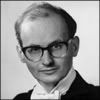As to your question, what intrigues me is the difference between a democratic socialist and a social democrat. I'm firmly one of the latter, and what disturbs me about socialism is that as I understand it, it's supposed to be a transitional phase on the way to communism.

[/quote]
Socialism itself is a very hard term to pin down, but the definition that you refer to is exclusively Marxian. Many alternate definitions exist, which generally refer to the pursuit of an economic system separate from communism entirely. This socialist economy, pursued in its own regard, can refer to one of three systems that I know of: cooperative (or democratically controlled) enterprise, common ownership of enterprise (when ownership is not retained by a selective group of individuals, and instead by all), or state ownership (i.e. the public sector). A characteristic feature of a socialist economy is production for use rather than for profit. This feature is generally the one which I use to define non-Marxian socialism (excepting forms of market socialism, perhaps).
Democratic socialism itself is especially broad, so omega word may have to be more specific about whether he advocates reform or revolution. Social democracy historically used to refer to reformist socialism (i.e. favoring democratic change to society instead of spontaneous or organized revolution as a means to achieve socialism). This basically means that historical social democracy and democratic socialism are not mutually exclusive, so it is possible to use the terms interchangeably if one is explicitly referring to
socialist social democracy and gradualist democratic socialism. Contemporary or modern social democracy of course still supports the capitalist mode of production, but reformed to approximate the ideals of social justice.[/quote]
i believe that no socialist government should be lead by fascists, dictators or the wealthy. to have such leaders in my mind contradicts socialism's ideals. so because these should be avoided at all cost, i believe reform, then protest to gain reform, then and only after the other two fail, violent revolution. the only reason that democracy is included in my idea is that if correctly applied it could prevent such leaders from gaining power. also it should be a direct democracy as far as elections go. no electoral college crap. also i think that my ideal government would be democratic socialism in all ways economically and socially.


















 - By Tainari88
- By Tainari88 - By JohnRawls
- By JohnRawls